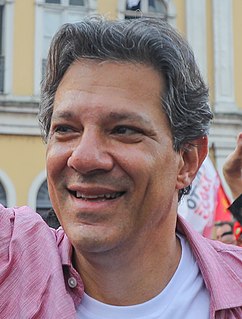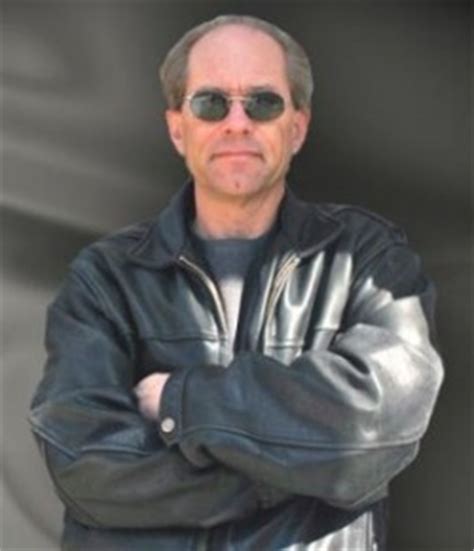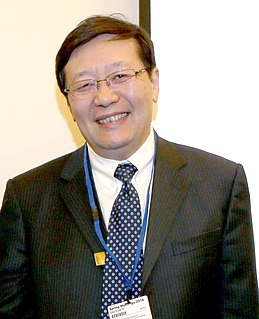A Quote by Fernando Haddad
Lula's political culture translated into a government project that sought to include the poor in the budget with minimal efforts in terms of structural transformation. The inclusion of the poor would trigger the economy, creating a virtuous cycle of mass consumption market, increased tax collection, more investments, and more benefits.
Quote Topics
Benefits
Budget
Collection
Consumption
Creating
Culture
Cycle
Economy
Efforts
Government
Include
Inclusion
Increased
Investments
Market
Mass
Mass Consumption
Minimal
Minimal Effort
More
Political
Political Culture
Poor
Project
Sought
Structural
Tax
Terms
Transformation
Translated
Trigger
Virtuous
Would
Related Quotes
For complicated historical and political reasons, we associate 'poor' in our public consciousness with 'black.' Terms such as 'welfare queen' and 'culture of poverty' became associated uniquely with the social maladies of African Americans in urban ghettos, despite the fact that poor whites outnumbered poor blacks.
America is the wealthiest nation on Earth, but its people are mainly poor, and poor Americans are urged to hate themselves... It is in fact a crime for an American to be poor, even though America is a nation of poor. Every other nation has folk traditions of men who were poor but extremely wise and virtuous, and therefore more estimable than anyone with power and gold. No such tales are told by American poor. They mock themselves and glorify their betters.
In the world of development, if one mixes the poor and the nonpoor in a program, the nonpoor will always drive out the poor, and the less poor will drive out the more poor, unless protective measures are instituted right at the beginning. In such cases, the nonpoor reap the benefits of all that is done in the name of the poor.
The reality is the most important thing that can be done are these permanent changes like to the tax code, reduction of government spending. These are the things that pop up in economy and move it in the right direction, start to make it an economy that is moving because of the money in the private economy. When you think about it, when the Fed is lowering an interest rate, what it's doing is it's creating more liquidity. It's putting more money into the economy. The same thing happens when you reduce the tax except if happens from physical policy.
For families across the UK who are income-poor, but more than that, whose lives are blighted by worklessness, educational failure, family breakdown, problem debt and poor health, as well as other problems, giving them an extra pound - say through increased benefits - will not address the reason they find themselves in difficulty in the first place.
When you live in a poor neighborhood, you are living in an area where you have poor schools. When you have poor schools, you have poor teachers. When you have poor teachers, you get a poor education. When you get a poor education, you can only work in a poor-paying job. And that poor-paying job enables you to live again in a poor neighborhood. So, it's a very vicious cycle.
All taxes, except a 'lump-sum tax,' introduce distortions in the economy. But no government can impose a lump-sum tax - the same amount for everyone regardless of their income or expenditures - because it would fall heaviest on those with less income, and it would grind the poor, who might be unable to pay it at all.
If the "rich" were swarming into poor neighborhoods and beating the poor until they coughed up the dimes they swallowed for safekeeping, yes, this would be a transfer of income from the poor to the rich. But allowing taxpayers to keep more of their money does not qualify as taking it from the poor - unless you believe that the poor have a moral claim to the money other people earn.


































